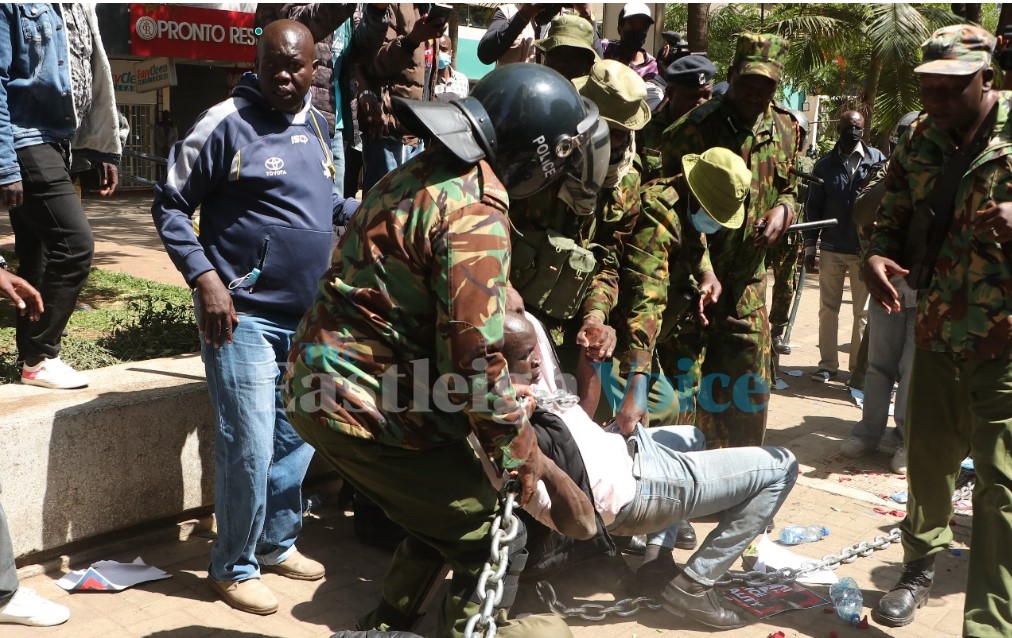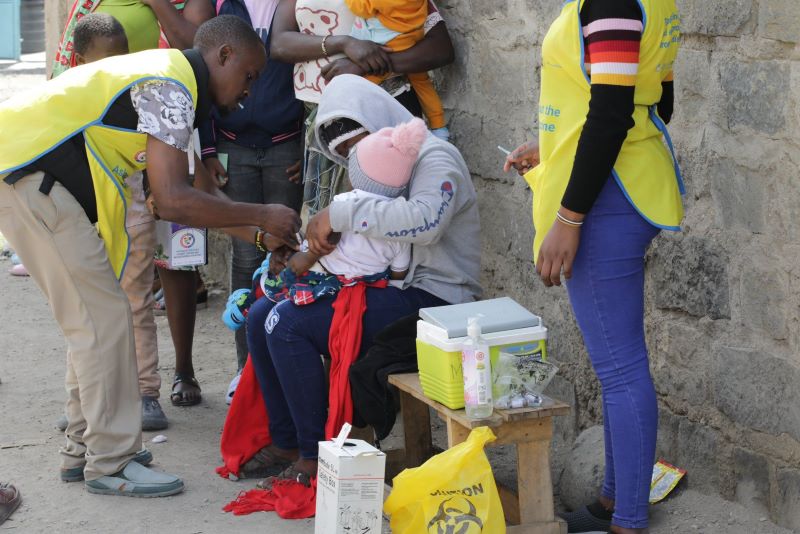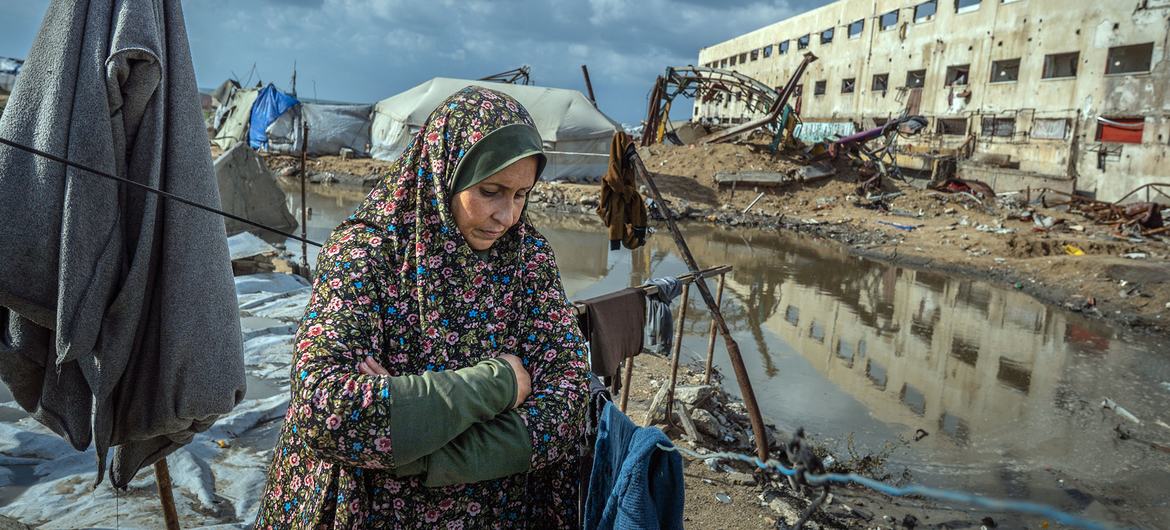Kenya faces UN scrutiny over police brutality and human rights abuses

Local human rights organisations submitted that, despite the largely peaceful nature of the protests, there were credible allegations of excessive and lethal force used by police and security agencies, the arrest of hundreds of peaceful demonstrators, and reports of enforced disappearances.
Acts of police brutality against civilians during last year’s anti-Finance Bill protests and subsequent instances of extrajudicial actions against Kenyans have featured prominently in the ongoing review of the country’s human rights record by the United Nations Human Rights Council in Geneva, Switzerland.
Local human rights organisations submitted that, despite the largely peaceful nature of the protests, there were credible allegations of excessive and lethal force used by police and security agencies, the arrest of hundreds of peaceful demonstrators, and reports of enforced disappearances.
More To Read
- European Parliament moves to block Sh23.44 billion aid to Tanzania after post-election violence
- Report: Civic space in Kenya shrinking, citizens face restrictions on expression and assembly
- Global HIV response facing worst setback in decades, UNAIDS warns
- Witness: Officers beat Kianjokoma brothers unconscious before driving them away
- Kanja admits police could have done better in handling Gen Z protests, advocates for training
- Ending violence against women ‘a matter of dignity, equality and human rights’
These actions reportedly led to the deaths of at least 60 Kenyans, according to the Kenya National Commission on Human Rights (KNCHR).
The committee urged that the use of force by law enforcement officers during peaceful assemblies be brought into line with United Nations guidance on less-lethal weapons in law enforcement and the Basic Principles on the Use of Force and Firearms by Law Enforcement Officials.
A compilation of submissions prepared by the Office of the United Nations High Commissioner for Human Rights indicated that cases of enforced disappearance remained a significant issue in the country, even after the protests, with minimal investigation or prosecution of those allegedly responsible.
"Security agencies have been implicated in abductions, often justified on grounds of terrorism, protests, and political dissent," the report states.
The African Commission on Human and Peoples’ Rights expressed concern about the persistence of police brutality, the excessive use of force, and a prevailing culture of impunity within the police service.
Human rights organisations also reported a longstanding culture of impunity for acts of torture and the inadequate enforcement of existing laws, including the Prevention of Torture Act, 2017.
"The cultural acceptance and normalisation of torture as a means of interrogation and punishment remains deeply entrenched and is often viewed as a legitimate method of extracting information," the document adds.
While Kenya has committed to preventing torture and impunity through the full implementation of the Prevention of Torture Act, 2017, and the National Coroners Service Act, 2017, human rights groups noted continued challenges in realising this goal.
In response, the State, through the Attorney General, said the National Coroners Service was being established in line with the National Coroners Service Act, though it did not provide specific timelines.
It also stated that the Office of the Director of Public Prosecutions (ODPP) is actively pursuing justice and accountability for police misconduct.
"The ODPP is managing over 136 criminal cases against police officers, including 30 related to extrajudicial killings and others involving various sexual and Penal Code offences," the State noted.
Other key concerns raised by human rights organisations include Kenya’s delay in ratifying the Treaty on the Prohibition of Nuclear Weapons, and shortcomings in the Prevention of Terrorism Act (POTA), 2012 — particularly its failure to define ‘terrorism’ in accordance with regionally or internationally accepted standards. This ambiguity, they say, has resulted in the arbitrary application of anti-terrorism laws and related policies.
The committee emphasised that Kenya must ensure all counter-terrorism measures comply with the Convention Against Torture and adhere to the principle of proportionality.
It further recommended a review of the definition of terrorism in POTA (2012) to align it with international standards.
Death penalty
Regarding the long-standing debate over the abolition of the death penalty, the government reiterated that Kenya is “a de facto abolitionist state.” Although it has not ratified the Second Optional Protocol to the International Covenant on Civil and Political Rights (ICCPR), the State said it is amending relevant laws to reflect evolving policy directions.
The committee also heard concerns about a high level of impunity for crimes against journalists, despite Kenya previously supporting a recommendation to investigate such attacks.
The review is expected to yield a series of recommendations to help improve Kenya’s human rights record.
This marks the fourth time Kenya is undergoing the Universal Periodic Review (UPR) by the United Nations Human Rights Council’s Working Group.
During each UPR cycle, states are expected to outline the steps they have taken to implement previous recommendations and highlight recent human rights developments.
Kenya’s first, second, and third UPR reviews were conducted in May 2010, January 2015, and January 2020, respectively.
States are expected to implement accepted recommendations within each 4.5-year cycle, with progress monitored by UN agencies, NGOs, and civil society organisations. Countries may also voluntarily submit mid-cycle progress reports.
Top Stories Today












































